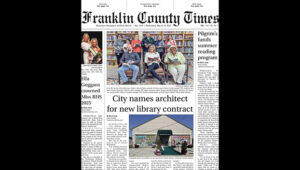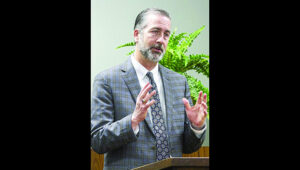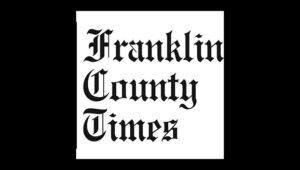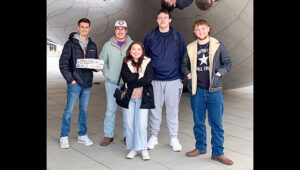Despite health troubles, Cheney out selling tax cut
By Staff
March 7, 2001
Three days prior to experiencing chest pains and checking himself into George Washington University Hospital for heart angioplasty on Monday, Vice President Richard Cheney was busy selling the Bush Administration tax cut proposal during a telephone interview with this writer.
Cheney, 60, didn't sound like a man with heart trouble during that interview.
He was workmanlike in selling the Bush tax cut plan and passionate in downplaying Democratic Party objections to that plan. As the point man for
President George W. Bush on his legislative agenda, Cheney spent the weekend working the Sunday morning talking head shows spreading the same message in support of the tax cut that he communicated during the Friday interview.
Attacks
Democratic Party attacks on the Bush tax cut center on oft-repeated claim of Democratic presidential nominee Al Gore that the plan concentrates the bulk of tax relief in the wealthiest one percent of the nation's taxpayers. The Republicans point to the fact that Congressional Budget Office projections show that the U.S. Treasury will have about $1 trillion after the Bush plan
limits government spending, drops some of the lowest income Americans from the tax rolls altogether and gives tax relief to every American who pays taxes.
Asked why the Bush tax cut was good for Mississippi the poorest state in the Union Cheney offered this response:
package is not targeted on the average, middle-income American family just isn't true.
Vital jobs
With the Ingalls Shipyard in Pascagoula, Raytheon Systems in Forest and Madison and a host of other defense-related jobs a vital part of Mississippi's economy, any talk of tax cuts or spending reductions carries with it the possibility of endangering those jobs.
But Cheney was adamant that the Bush tax cut proposal could be accomplished without endangering those jobs.
Cheney said: "If you look at what the president proposed, it's a very conservative set of economic assumptions behind the program. We assume, for example, a rate of economic growth less than the blue chip economic forecasts, we assume the rate of revenue increase will be less than the rate of economic growth.
Confidence
Cheney expressed confidence that while Republicans and Democrats on Capitol Hill are divided on the issue of the Bush tax cut, "we'll see people coming more and more in our direction."
The vice president made a valid point in light of the rhetoric coming from Democratic leaders in Congress on the tax cut issue: "What we've seen is that the Democrats have gone from absolutely not, no way' now to about a $900 billion tax cut package and they've been moving steadily closer to the president's position. In the end, we'll get most of what the president is asking for."
Clearly, Vice President Dick Cheney is expected to play a pivotal role in a successful Bush Administration. While most veeps spend their terms as political "ladies in waiting," Cheney wasn't brought on board as a ceremonial figure or as window-dressing.
It would be a blow to Bush and to the country if Cheney's health keeps him from fulfilling his role as point man for the president on Capitol Hill during the next four years.
Given Cheney's longtime friendship with Mississippi's two Republican U.S. senators, it would be a blow to Mississippi's clout in this administration, too.
Sid Salter is publisher/editor of the Scott County Times in Forest. E-mail him at salternews.aol.com.













